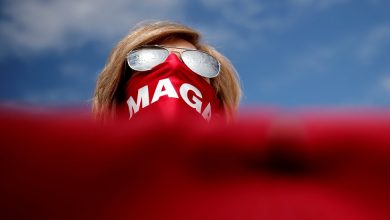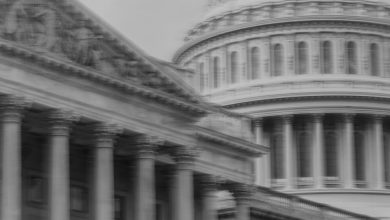Do Colleges Deserve an Exemption From Antitrust Law?

I have a feeling that elite colleges and universities are going to have a hard time dealing with allegations that they have illegally colluded by coordinating their financial aid policies. It’s not just a question of whether they broke the law, although the allegations in the class-action lawsuit filed on Sunday appear damning. It’s a broader question of whether Ivy League universities and other renowned institutions still deserve deference and freedom of action because of their contributions to society — or whether they should be scrutinized like any other self-interested institutions, such as tire manufacturers.
In 1992, when elite American colleges and universities were more universally esteemed than they are today, Congress carved out a temporary exemption for them in antitrust law. It was the political aftermath of an antitrust case that the Justice Department had brought in 1991 against the eight Ivy League universities plus the Massachusetts Institute of Technology, the so-called Overlap Group, which had agreed not to outbid one another for students through their financial aid packages. The exemption allowed schools to coordinate their financial aid policies if they admitted all students on a “need-blind” basis — that is, without regard for their ability to pay. That exemption was extended and broadened in Section 568 of the Improving America’s Schools Act of 1994, and it has been extended several times since. It’s set to expire on Sept. 30.
The 568 Presidents Group — named after the section of the 1994 law — is a consortium of schools that have need-blind admissions. Members aren’t allowed to discuss individual students’ financial aid packages, but by agreeing to adhere to a detailed rubric for how families’ financial need is determined, they can go a long way toward eliminating aid as a recruiting tool. The group’s website says, “The participating institutions believe that this approach, when applied in a consistent manner, serves to diminish or eliminate the divergent results that continue to threaten the longstanding tradition of awarding aid on the basis of need.”
The class-action lawsuit filed on Sunday argues that the 568 Presidents Group, which the suit calls a “cartel,” broke the law because some of the schools in the group, some of the time, were not fully need-blind in their admissions decisions. For example — brace yourself for a shock — the children of extremely wealthy families might have gotten a bit of an edge. The lawsuit quotes E. Gordon Gee, a former chancellor of Vanderbilt University and a former president of Brown University, both of which are named in the suit, who said that any school president under the influence of “truth serum” would concede that donor connections make a difference in admissions. Columbia University, also named in the suit, openly states that admissions to its School of General Studies, although not to its other undergraduate units, are not need-blind.
In addition to Columbia, Vanderbilt and Brown, the defendants are the California Institute of Technology, the University of Chicago, Cornell, Dartmouth, Duke, Emory, Georgetown, M. I.T, Northwestern, Notre Dame, the University of Pennsylvania, Rice and Yale. Each has been a member of the 568 Presidents Group all or part of the time since 2003.
Paragraph 111 of the suit looks especially problematic for the defendants. Yale dropped out of the group in 2007 but rejoined it in 2018. In 2008, the suit says, Caesar Storlazzi, then Yale’s director of student financial services, told The Yale Daily News that by leaving the 568 group, Yale was free to give families more aid than they would have gotten under the “consensus methodology” that group members commit to following. Storlazzi went on to say that what is “not good” about the 568 approach is that it has “one needs-analysis formula that everyone has to sign on to.”
In that unguarded statement to the student newspaper, Storlazzi seemed to essentially say that the 568 methodology allows member schools to coordinate in a way that lets them spend less on financial aid. If that is true, it looks bad for the defendants.
Three ultra-elite schools — Harvard, Princeton and Stanford — have never belonged to the 568 group. In that same Yale Daily News interview from 2008, Sally Donahue, who was then Harvard’s director of financial aid, said the 568 formula would have yielded financial-aid packages that were smaller than what Harvard wanted to award.
Members of the 568 Presidents Group are likely to argue in their defense that their coordination allows them to give more aid than they otherwise would and to target the most needy students. Other organizations use similar logic: “If we use limited resources to influence institutional choice among students who would attend college — or enroll in a similar institution — regardless of subsidies, we will have insufficient funds to increase college access and enrollment,” Sandy Baum, an economics professor emerita at Skidmore College, said in an explainer for financial aid professionals issued by the College Board.
“It’s so hard to get your head around this if you’re an antitrust person who’s used to dealing with the business world,” said Sarah Flanagan, vice president for government relations and policy development for the National Association of Independent Colleges and Universities. “It’s not necessarily the same dynamic in the higher-ed marketplace. Competition has probably led to higher prices.” (Flanagan’s organization includes most of the members of the 568 group, but she said she was not speaking on their behalf or addressing the allegations in the lawsuit.)
On that score, it’s interesting to look at research published last year by Ian Fillmore, an assistant professor of economics at Washington University in St. Louis. He examined how a broader group of 1,200 colleges and universities used the information they collected about family finances to allocate financial aid. He found that low-income students received only about 22 percent of the money the schools saved by giving less financial aid to rich students who didn’t need it. The other 78 percent of the money was kept by the schools to use as they saw fit. In an interview, Fillmore said: “That doesn’t sound bad if you think they will do wonderful things with their money. If you think they spend their dollars on something socially wasteful, it’s terrible.”
The class-action lawsuit is likely to cause protracted pain for the elite schools. To decide how much money to ask for, the litigants are probably going to seek extensive records of admissions and financial aid decisions. That could be embarrassing. As a first stab, the lawsuit estimates that the defendants “have overcharged over 170,000 financial-aid recipients by at least hundreds of millions of dollars.”
Beyond that, I’m having trouble imagining that Congress will want to renew the schools’ antitrust exemption past Sept. 30. In the early 1990s, the exemption could be construed as a reward to universities that chose to make their admissions decisions need-blind and a way of encouraging more universities to do the same. But elite colleges and universities have a harder time now arguing for special treatment. They are richer now than they were three decades ago, their tuition sticker prices have skyrocketed and they are increasingly mistrusted by conservatives. In 2019 only 33 percent of Republicans and Republican-leaning voters thought colleges and universities had a positive effect on “the way things are going in this country,” down from 53 percent who said so in 2012, according to a Pew Research Center survey. Among Democrats and people leaning toward the Democratic Party, the positive share held steady over the same period at 67 percent.
Personally I like these schools. I think they produce amazing research and education. I interview economics professors from the 568 group just about every week and I even attended one of the defendants (Go Big Red!). But I think the schools need to brace themselves for a world where they face the same antitrust scrutiny as anyone else. On that score, the issues are remarkably similar to those in the Supreme Court’s decision in June that the N.C.A.A. could not ban relatively modest payments to student-athletes. In that case as in this one, schools argued that competition would be ruinous. But is it?
The readers write
Free trade has been a punching bag for politicians and self-interested business folks forever, as you mention in your Monday newsletter. But its virtues are undoubtable. Just look at the growth in G.D.P. for everyone and how many nations have been lifted from poverty because of it. You can see the data in “Rhymes With Fighter,” my book on Clayton Yeutter, who liberalized trade in the 1980s and 1990s as U.S. trade representative and then as agriculture secretary. Strategic and vital industries — say, chips and the like — should probably be guarded. But I suspect these are exceptions.
Joseph Weber
Lincoln, Neb.
Quote of the day
“My mission is to help you understand Davos Man as a species. He is a rare and remarkable creature — a predator who attacks without restraint, perpetually intent on expanding his territory and seizing the nourishment of others, while protecting himself from reprisal by posing as a symbiotic friend to all.”
— Peter S. Goodman, “Davos Man: How the Billionaires Devoured the World” (2022)
Have feedback? Send me a note at [email protected].





